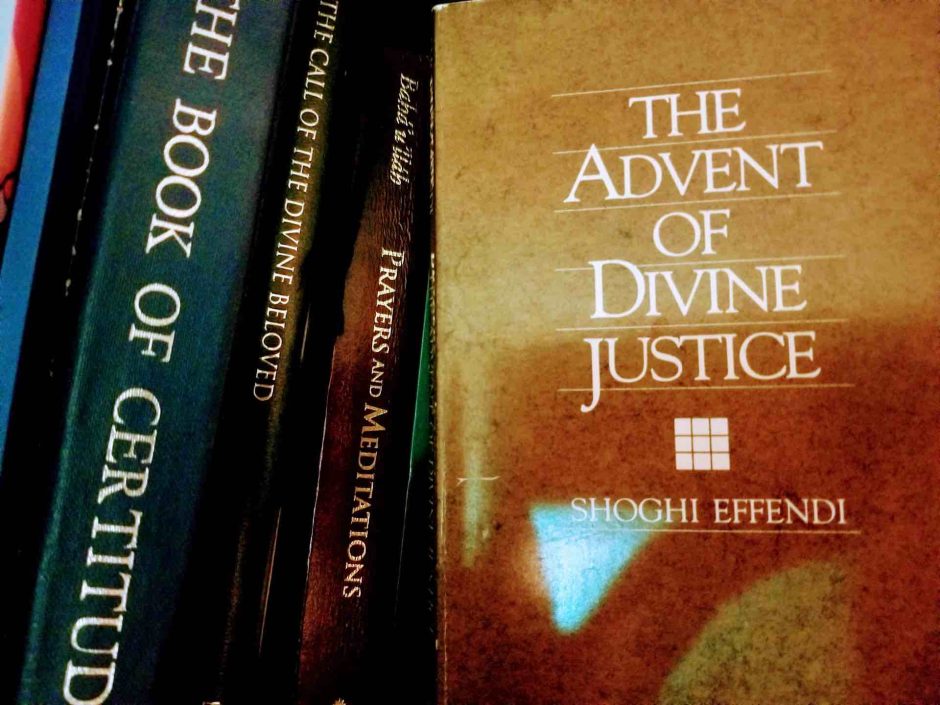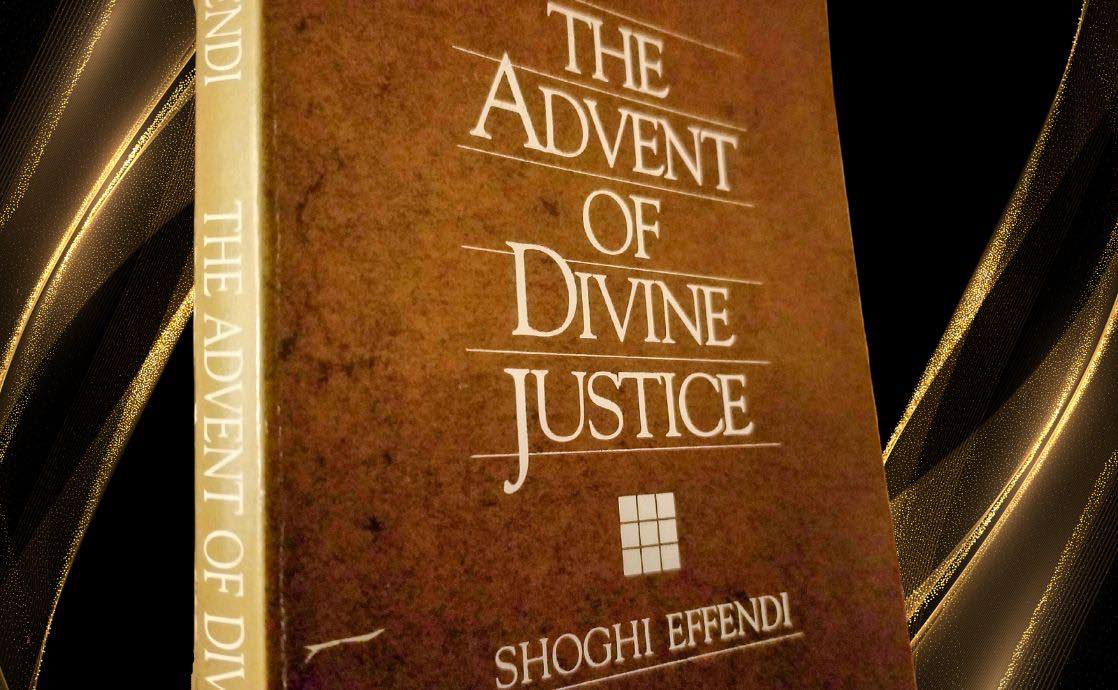The views expressed in our content reflect individual perspectives and do not represent the authoritative views of the Baha'i Faith.
If you asked me what book has most positively and profoundly influenced my character, conduct, values, interests, avocations, and vision for social justice, I would have to say, “The Advent of Divine Justice.”
“The Advent of Divine Justice” is a powerful book that offers a divine blueprint for the progress of both our spiritual and social lives.
RELATED: Why You Should Read The Kitab-i-Iqan: The Book of Certitude
An Introduction to Shoghi Effendi’s ‘The Advent of Divine Justice’
After Abdu’l-Baha — one of the central figures of the Baha’i Faith — passed away in 1921, Shoghi Effendi — the Guardian of the Baha’i Faith — served as the principal translator and interpreter of the Baha’i writings and wrote thousands of letters to nurture, inspire, guide, develop, and deepen the Baha’i community. One of these letters was “The Advent of Divine Justice,” which he wrote to the North American Baha’is in 1938.
In “The Advent of Divine Justice,” Shoghi Effendi discusses global crises, the destiny of North America, the spiritual qualities Baha’is must cultivate, and tasks Baha’is must fulfill to create a more just, united, and peaceful world.

How This Book Offers a Blueprint for Life
In 1968, Paul Haney, a former chairman of the National Spiritual Assembly of the United States and Hand of the Cause of God, wrote:
Of all these communications, perhaps the one most directly related to the life of the individual Bahá’í was The Advent of Divine Justice, written in 1938, in which the Guardian set forth the spiritual prerequisites for success in every activity…
Special emphasis was placed not only upon the imponderable factors associated with the inner life of the spirit, but also upon the human and social relationships which must be cultivated and made an integral part of the daily life of every Bahá’í.
In terms of the prerequisites for our spiritual success, Shoghi Effendi wrote:
These requirements are none other than a high sense of moral rectitude in their social and administrative activities, absolute chastity in their individual lives, and complete freedom from prejudice in their dealings with peoples of a different race, class, creed, or color.
Shoghi Effendi defined this “rectitude of conduct” as “an abiding sense of undeviating justice, unobscured by the demoralizing influences which a corruption-ridden political life so strikingly manifests.” He explained that this rectitude of conduct requires us to be just, equitable, truthful, honest, fair-minded, reliable, and trustworthy in every phase of our lives.
A “chaste and holy life” is characterized by our “modesty, purity, temperance, decency, and clean-mindedness,” involving “no less than the exercise of moderation in all that pertains to dress, language, amusements, and all artistic and literary avocations.”
RELATED: How to Live a Holy, Pure, and Chaste Life
Regarding freedom from prejudice, the central figures of the Baha’i Faith did not tolerate oppression. They understood how dangerous and prevalent racism, sexism, classism, colorism, religious prejudice, and xenophobia are, which is likely why Shoghi Effendi stated that “every organized community enlisted under the banner of Bahá’u’lláh should feel it to be its first and inescapable obligation to nurture, encourage, and safeguard every minority…”
How ‘The Advent of Divine Justice’ Is an Especially Powerful Book for Racial Healing
Shoghi Effendi was a powerful anti-racist advocate. During the Jim Crow era, when racial segregation was legal in the United States and Black people faced constant harassment, torture, and lynching without justice, Shoghi Effendi wrote:
As to racial prejudice, the corrosion of which, for well-nigh a century, has bitten into the fiber, and attacked the whole social structure of American society, it should be regarded as constituting the most vital and challenging issue confronting the Bahá’í community at the present stage of its evolution.
The ceaseless exertions which this issue of paramount importance calls for, the sacrifices it must impose, the care and vigilance it demands, the moral courage and fortitude it requires, the tact and sympathy it necessitates, invest this problem, which the American believers are still far from having satisfactorily resolved, with an urgency and importance that cannot be overestimated.
RELATED: Sadie Oglesby’s Message About Standing Up for Racial Justice
Before the public even became conscious of implicit bias, Shoghi Effendi advised white people “to abandon once for all their usually inherent and at times subconscious sense of superiority” and “to correct their tendency towards revealing a patronizing attitude towards the members of the other race…”
He listed practical steps that people of every background need to do to have “an interracial fellowship completely purged from the curse of racial prejudice…”
When describing the state of the world, Shoghi Effendi wrote:
A world, dimmed by the steadily dying-out light of religion, heaving with the explosive forces of a blind and triumphant nationalism; scorched with the fires of pitiless persecution, whether racial or religious; deluded by the false theories and doctrines that threaten to supplant the worship of God and the sanctification of His laws; enervated by a rampant and brutal materialism; disintegrating through the corrosive influence of moral and spiritual decadence; and enmeshed in the coils of economic anarchy and strife…
This statement is as true today as when he wrote it 86 years ago. We can see so much global hatred, corruption, and suffering, but “The Advent of Divine Justice’’ offers a prescription to heal ourselves, our community, and our world. Read this book to learn about the glorious destiny that Baha’is envision for humanity and the steps we can take to get there.
















Comments
Sign in or create an account
Continue with Googleor